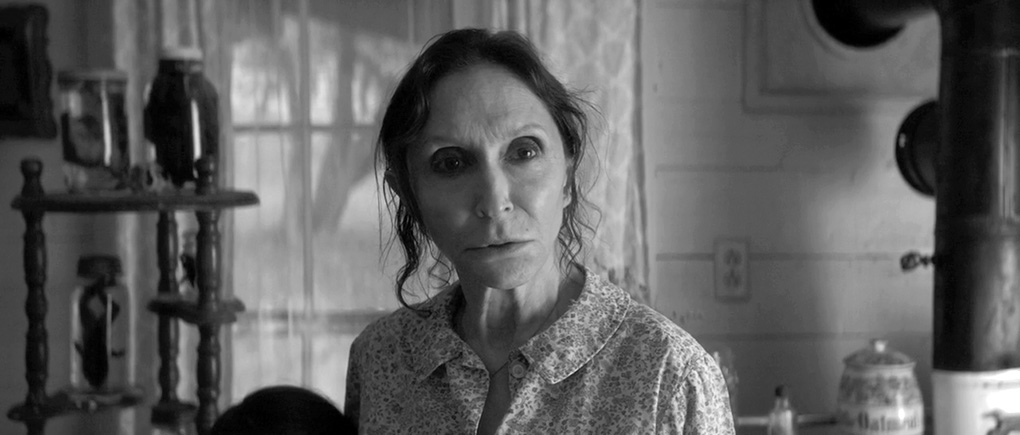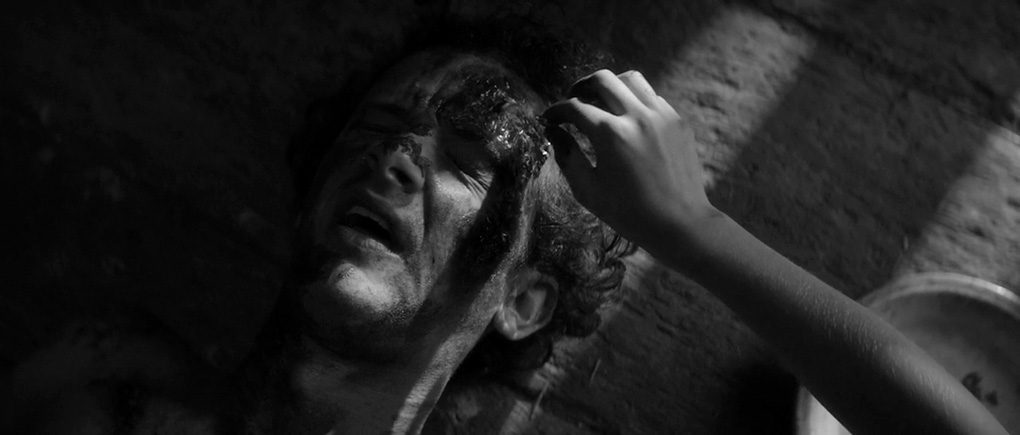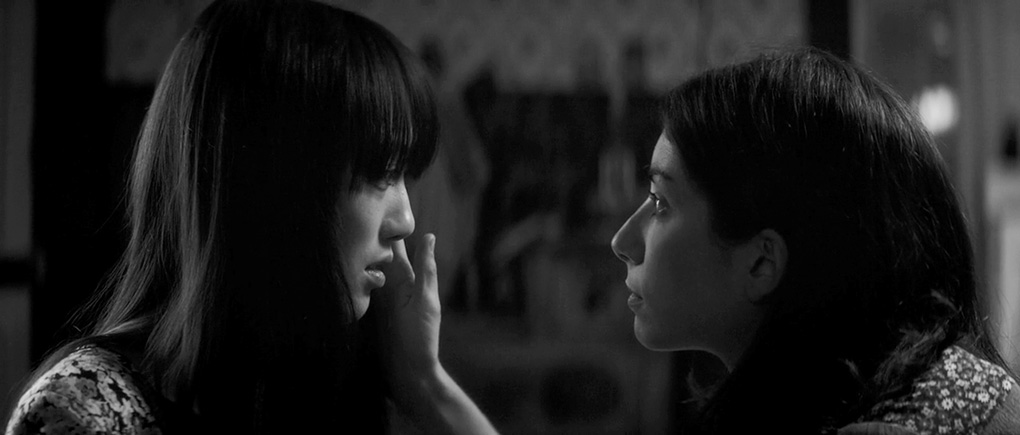|
It's not often that I am genuinely disturbed by a film. Maybe I've watched so much extreme cinema now that I'm numbed to the worst of its effects, but while it may be a reflection of my own troubled psyche, I still like being taken to the darkest of places by filmmakers with seemingly no sense of self-censorship. This does not, I should point out, emotionally detach me from films – I can still become upset and even shocked if I have made a degree of emotional investment in the character on whom the suffering and trauma is being inflicted, whether it be by misfortune, society or a malevolent other. Just occasionally, it's because I'm asked to get inside the head of someone I would rather not be, but who in an alternative reality might see myself becoming. But these responses are usually restricted to individual scenes or sections of films that I am slowly pulled into, a gradual journey into darkness and (sometimes) back out into the light. Yesterday, however, I watched director Nicolas Pesce's remarkable debut feature, The Eyes of My Mother, and I can honestly say that there was barely a moment in it when I wasn't shifting or squirming with discomfort in my seat.

This is one of those times when I'm sorely tempted to reveal nothing at all about the story and just encourage you to go in cold, albeit with this warning: The Eyes of My Mother is a disturbing and morally challenging film, and is strong enough in content to send more sensitive souls scurrying for the exit long before it reaches its halfway mark. I went in with little foreknowledge of what I was going to see, having deliberately chosen to sidestep reviews and synopses and attracted to it primarily by its troubling poster and a small handful of intriguing promotional stills. I knew in advance that it was shot in black-and-white – an aesthetic choice that makes a statement in itself, though not always a clear one – and that it had been well received at Sundance. It also had the word 'Eyes' in the title. Put 'Eyes' in the title of a modern, horror-themed film and I'm on edge even before the first frame of flickering light hits the screen. So, if you want to experience the film as I did, without any forewarning of how the story unfolds, then I'd skip this review, steer clear of any others and take your chances. For the rest, I'll try to keep spoilers to a first-third minimum, not easy when a film starts delivering dark surprises just minutes into its compact 76-minute running time, and these surprises are the very things that will either hook you or persuade you to give this one a miss.
It begins, as a good many modern horror stories have of late, with an encounter that actually doesn't take place until later in the story, but which is shot and edited in a manner that will prevent you from working out what has actually happened and second-guessing what could have led to it. That's all I'll say on this. We then meet the young Francisca and her Mother (who is never named here), a Portuguese immigrant and former surgeon who now lives with her daughter in a secluded farmhouse. Determined to pass on her surgical and anatomical knowledge to Francisca, the Mother demonstrates how dissect a cow's eye as in order to understand its inner workings, something the curious young Francisca enthusiastically responds to. When a cheery, well-dressed young man named Charlie turns up at their property and asks to use the bathroom, the Mother reluctantly lets him in and soon regrets it when he pulls a gun on her. When Francisca's father gets home a few minutes later, he finds Charlie manically bludgeoning his wife's corpse into a pulp.

It's here that we get our first real taste of Pesce's suggestive approach to violence, which tends to side-step the act itself by hopping forward in time and leaving us to work out what took place in the interim. Here, having first discovered Francisca sitting obediently in the kitchen, the Father cautiously moves towards the bathroom, and when he opens the door we catch only the briefest glimpse of the terrible act that is unfolding (the worst elements of which we are shielded from by the bathtub in which it is taking place). We don't see what the Father does to overpower Charlie, but a few seconds later he is lying on a tarpaulin sheet outside the house being dragged into a barn. Moments later, the Father is sitting on the sofa, smoking a cigarette and watching TV while Francisca dutifully cleans the bloodied bathroom floor. When night falls, the hitherto silent Father says quietly to Francisca, "I need help with your mother," and the two of them cart her battered body into the woods and bury her. If this doesn't already have you rattled (and it probably will), then you'd best be ready for the scene in which Francisca – who is still a child at this point – visits the chained-up Charlie in the barn, questions him about his actions, picks glass shards from his face and sews up his wounds. When he asks her if she intends to kill him she replies, "Why would I kill you? You're my only friend. I'm going to take care of you." She then proceeds to cut out his eyes and his larynx. Once again, we see only the results of her actions not the surgery itself. By this point you'll be glad for that considerable mercy.
The film is divided into three captioned chapters – Mother, Father and Family – and in the course of each, the timeline jumps forward several years. The entire second chapter unfolds exclusively from the now adult Francisca's viewpoint, which inevitably creates a bond between her and the audience that few will be comfortable with. Expectations fuelled by the narrative trajectory of the first two chapters in relation to their titles build a very real sense of dread for the third, particularly once you see how it kicks off. Here the viewpoint undergoes a further subtle but significant shift, and it's in this final chapter's greater focus on the suffering of Francisca's victim that the skin-crawling horror of her actions hit home the hardest.

Stylistically, The Eyes of My Mother is as precision-tooled as any film I've watched all year, its deliberate pacing and striking monochrome scope compositions creating the sense of waking nightmare that's as vivid as that of early David Lynch. There are a handful of shots that do draw attention to the filmmaking process – unexpected switches to arresting top-shots, or bolting the usually static or slowly drifting camera to a moving object – but they never feel superficially showy or out of place, and are as quirkily seductive as the more offbeat visual tics in the Coen brothers' debut feature, Blood Simple. The cast is also carefully chosen here, from Diana Agostini's wired intensity as the Mother to Kika Magalhaes' haunted portrayal of the adult Francisca, a woman shaped not just by childhood trauma but her isolation and upbringing, and whose psychosis is fuelled by pathological loneliness.
The Eyes of My Mother is a bold, supremely confident and hugely impressive first feature, a film that crawls under your skin its first ten minutes, then takes up residence there and misses no opportunity to remind you of its presence. It's darkly beautiful to look at (hats off to first-time feature cinematographer Zach Kuperstein), and its sense of gothic menace is further stoked by a fine low-key score from fellow newcomer Ariel Loh. Whether it will prove to be an arresting one-off or a distinctive first feature from a future filmmaker of considerable note only time will tell, but just the basic plot outline of his upcoming second feature Piercing* suggests that Pesce is not quite ready to set up camp in the mainstream moviemaking world just yet.
The Eyes of My Mother is in UK cinemas from 24 March 2017.
www.parkcircus.com
See cinema listings here: http://www.parkcircus.com/films/27463-the-eyes-of-my-mother
|